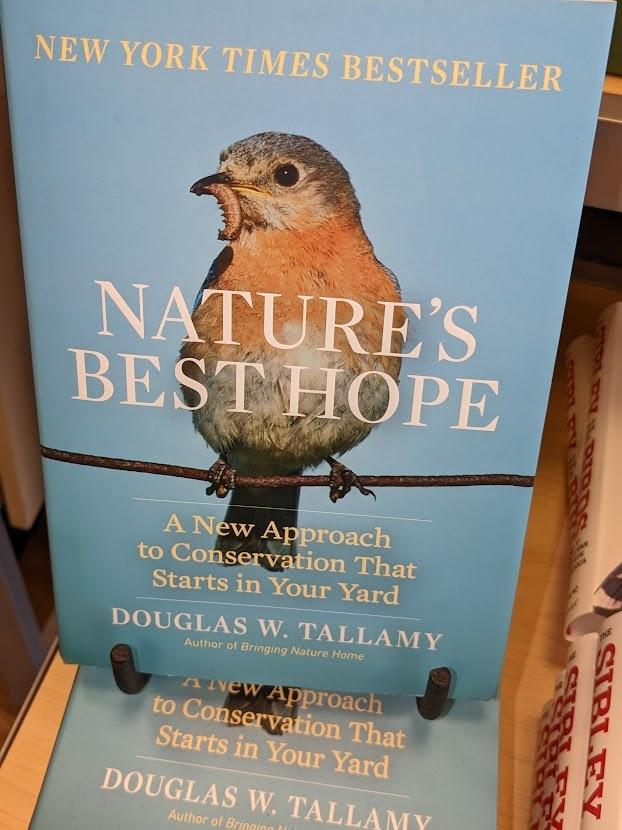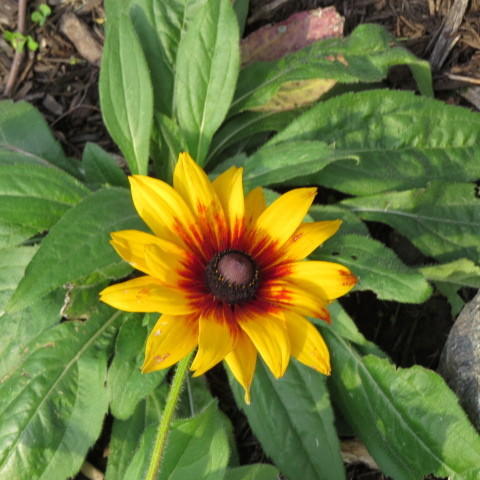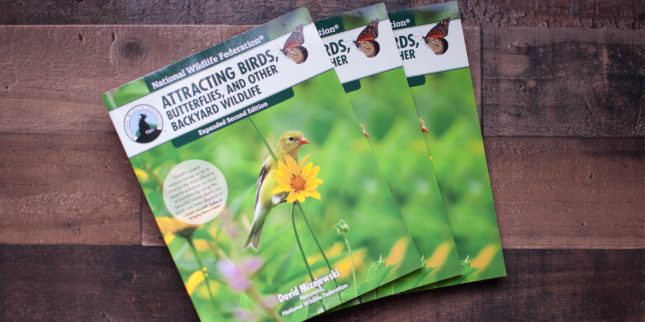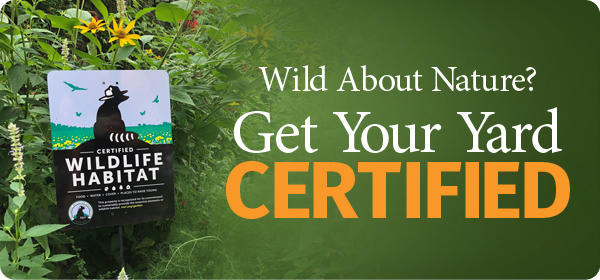Use Native Plants
Using native plants can make a huge difference to birds. Most birds eat insect that depend on native plant and tree species for their own survival. For example, according to Dr. Doug Tallamy, oak trees support about 557 species of caterpillar, while a non-native Gingko tree supports zero species of caterpillar. A breeding pair of Chickadees needs 6,000 - 9,000 caterpillars to raise a single brood; therefore the oak tree is significant to their survival. A key threshold to their survival is 70% native plants in a yard. Non-native grass and shrubs do not provide the food source or habitat that insects need to lay eggs and reproduce. Fewer insects means fewer birds.
Dr. Tallamy's book, "Nature's Best Hope" is available in our store.

For a link to Dr. Tallamy's study, click here:
The National Wildlife Federation has much information about native plants and getting your yard certified as a Wildlife Habitat.
Wild About Nature? Get Your Yard Certified
To learn more, visit www.wbu.com/certify-your-yard/
Anyone can create a welcoming haven for local wildlife. In fact, wildlife habitat gardens support twice as much wildlife as conventional lawns and non-native plant gardens. Turning your yard, balcony container garden or work landscape into a Certified Wildlife Habitat to attract birds, butterflies, and other neighborhood wildlife is fun, easy, and can make a lasting difference. Here is what your wildlife habitat should include:
Food: Native plants provide food eaten by a variety of wildlife. Feeders can supplement natural food sources.

Native perennial Rudbeckia (Black Eyed Susan) "Gloriosa Daisy"
Water: All animals need water to survive, and some need it for bathing or breeding as well.
Cover: Wildlife need places to take shelter from bad weather and places to hide from predators or hunt for prey.
Places to Raise Young: Wildlife need resources to reproduce, and to protect and nourish their young.
Sustainable Practices: Maintain your yard or garden in natural ways to ensure soil, air, and water stay healthy and clean.
Certify your space to show your commitment to wildlife. It’s easier than you might think. Wild Birds Unlimited is a Champion Sponsor of the NWF Certified Wildlife Habitat Program. Learn more on how to certify your wildlife habitat by clicking here, https://www.wbu.com/certify-your-yard
For even more information, the National Wildlife Federation book, "Attracting Birds, Butterflies, and Other Backyard Wildlife" by David Mizejewski, Naturalist, is available in our store.



